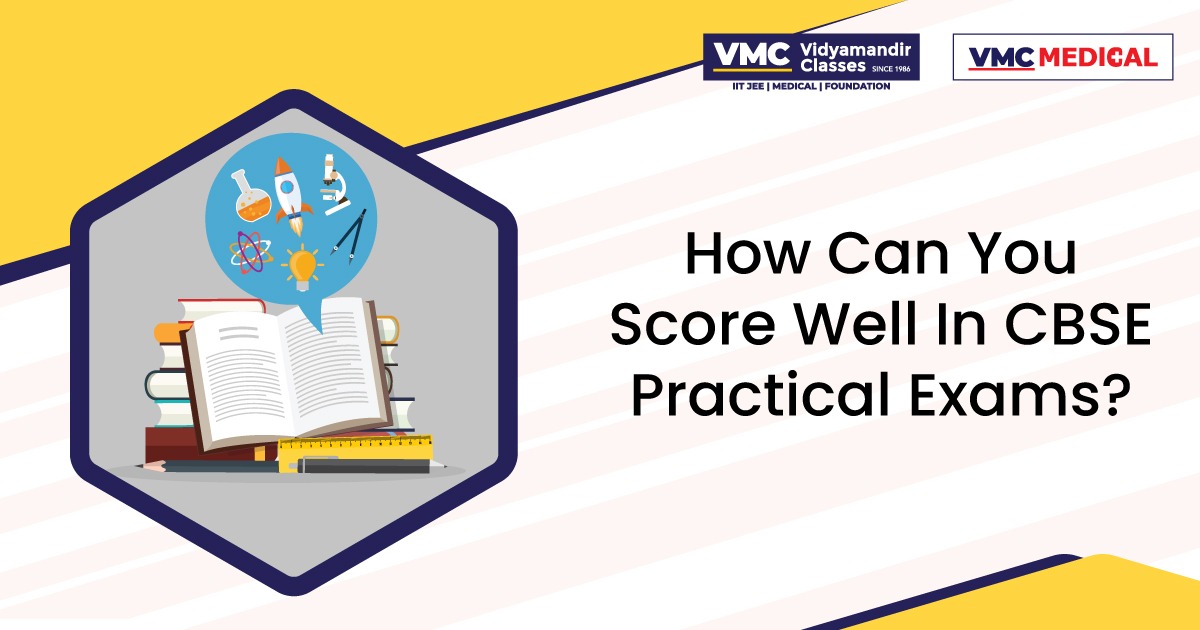How can you Score well in CBSE Practical Exams?
 Posted On
Posted On
450 total views, 1 views today
All of the students are probably busy with the revisions as the CBSE Annual Board Exams draw near, but have you also prepared for your practical exams? The practical test is frequently disregarded despite being a crucial component of the CBSE Board final exams. Most of us do not focus on the specifics and steps when teachers demonstrate real-world experiments in class. But in addition to having theoretical information, practical education is crucial to improve learning and understanding of the concepts as well as to aid in long-term memorization. A practical exam is a test to see if a student can apply his theoretical knowledge in real-world situations.
Although there are some common practices that must be followed in all subjects to offer you an advantage, the practical examination pattern often differs a little from subject to subject.
The following are the six most crucial guidelines to remember in order to excel in the CBSE Class 10th and Class 12th Board Practical Exams 2023:
- The idea underlying the particular experiment
Only after attentively and thoroughly reading the question will you be able to comprehend the experiment’s underlying theory. It is not at all difficult to carry out an experiment if you are familiar with the theory behind each and every one that was carried out in class.
- Become familiar with the experimentation process
Create a series of actions to carry out the particular experiment that was given to you. Procedures for different experiments vary. Therefore, you should be aware of the procedures to be followed and the equipment required for each experiment.
- Avoid cramming readings or observations
Keep a clear head as you conduct the experiment, and record the results in writing.
- Be good with circuits and diagrams
Create preliminary diagrams and visualize the experiments to prepare. Pay close attention to the circuit diagrams, especially in physics, and make sure you understand how the various terminals are connected to one another. The examiner may visit you during the exam, reset all of your equipment’s settings to see if they had been preset, and then ask you to redo the entire configuration. In order to avoid giving the examiner a terrible first impression, you should be well-prepared with diagrams and circuits.
- Maintain your composure throughout the practical exam
Any topic that the examiner presents to the student should offer them confidence. Keep your composure while performing the experiment, and make sure to write down everything you do so that you can respond to questions during the oral test that comes following the practical. Most of the time, the examiner will ask questions about the subject of the experiment.
You might be conducting an experiment to determine the focal length of a convex mirror, but when it’s time for your viva, you might be asked questions about a concave mirror. But if you’re too anxious, you might forget the answers to questions that weren’t really challenging. So, feel comfortable answering questions that might have nothing to do with the experiment you are conducting.
- Develop your perception
You should be reasonably familiar with the tastes and appearances of the various organic solvents before carrying out the practical exam in chemistry. This will make it simple for you to recognize and separate the various substances employed or firmed during the experiment.
Final Words
These suggestions, when combined with diligent practice and ongoing education, will undoubtedly help you perform superbly in your practical tests. All the Best!



